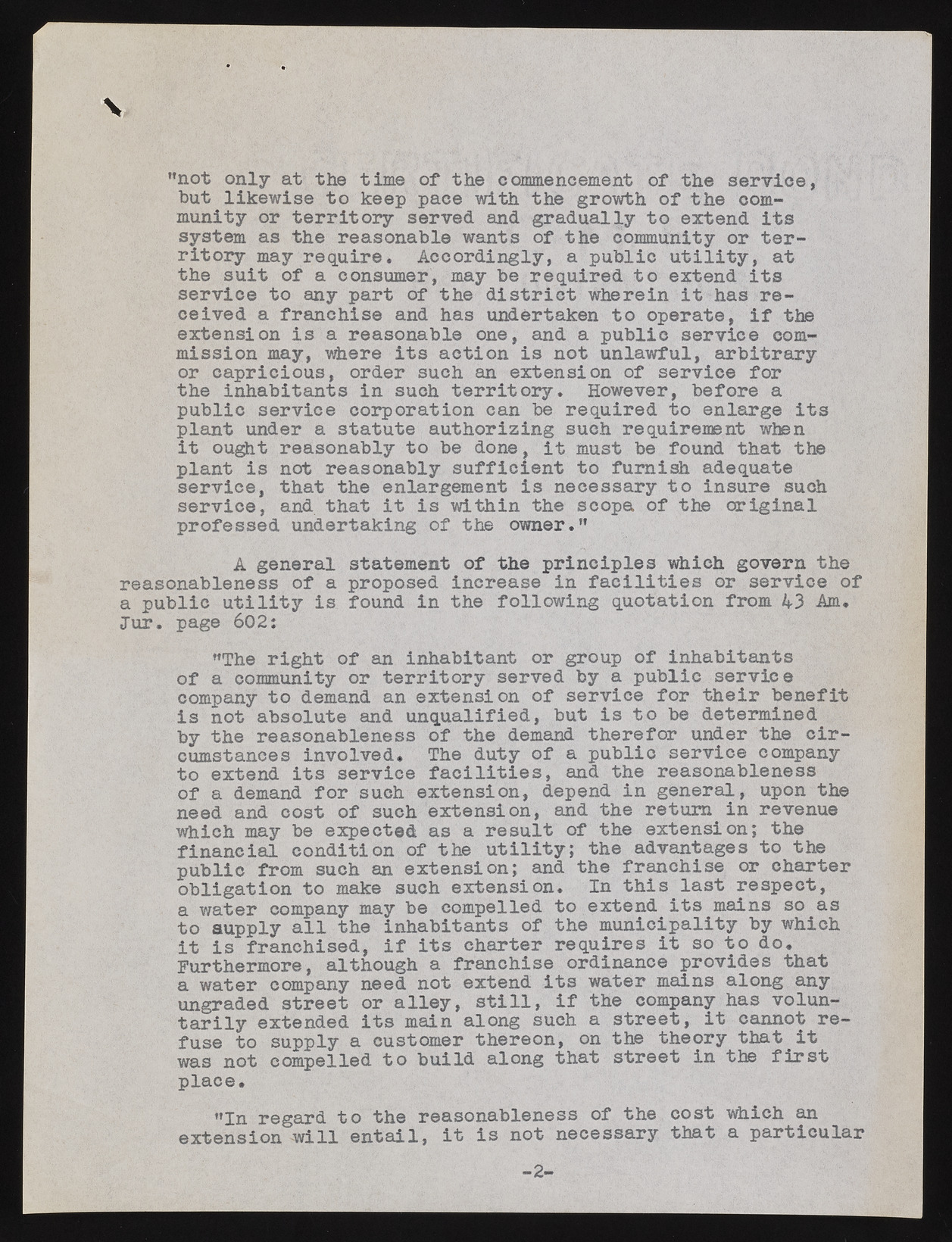Copyright & Fair-use Agreement
UNLV Special Collections provides copies of materials to facilitate private study, scholarship, or research. Material not in the public domain may be used according to fair use of copyrighted materials as defined by copyright law. Please cite us.
Please note that UNLV may not own the copyright to these materials and cannot provide permission to publish or distribute materials when UNLV is not the copyright holder. The user is solely responsible for determining the copyright status of materials and obtaining permission to use material from the copyright holder and for determining whether any permissions relating to any other rights are necessary for the intended use, and for obtaining all required permissions beyond that allowed by fair use.
Read more about our reproduction and use policy.
I agree.Information
Digital ID
Permalink
Details
More Info
Rights
Digital Provenance
Publisher
Transcription
V "not only at the time of the commenoement of the service, hut likewise to keep pace with the growth of the community or territory served and gradually to extend its system as the reasonable wants of the community or territory may require. Accordingly, a public utility, at the suit of a consumer, may be required to extend its service to any part of the district wherein it has received a franchise and has undertaken to operate, if the extension is a reasonable one, and a public service commission may, where its action is not unlawful, arbitrary or capricious, order such an extension of service for the inhabitants in such territory. However, before a public service corporation can be required to enlarge its plant under a statute authorizing such requirement when it ought reasonably to be done, it must be found that the plant is not reasonably sufficient to furnish adequate service, that the enlargement is necessary to insure such service, and that it is within the scope of the original professed undertaking of the owner." A general statement of the principles which govern the reasonableness of a proposed increase in facilities or service of a public utility is found in the following quotation from 43 Am. Jur. page 602: "The right of an inhabitant or group of inhabitants of a community or territory served by a public service company to demand an extension of service for their benefit is not absolute and unqualified, but is to be determined by the reasonableness of the demand therefor under the circumstances involved. The duty of a public service company to extend its service facilities, and the reasonableness of a demand for such extension, depend in general, upon the need and cost of such extension, and the return in revenue which may be expected as a result of the extension; the financial condition of the utility; the advantages to the public from such an extension; and the franchise or charter obligation to make such extension. In this last respect, a water company may be compelled to extend its mains so as to supply all the inhabitants of the municipality by which it is franchised, if its charter requires it so to do. Furthermore, although a franchise ordinance provides that a water company need not extend its water mains along any ungraded street or alley, still, if the company has voluntarily extended its main along such a street, it cannot refuse to supply a customer thereon, on the theory that it was not compelled to build along that street in the first place. "In regard to the reasonableness of the cost which an extension will entail, it is not necessary that a particular -2-

